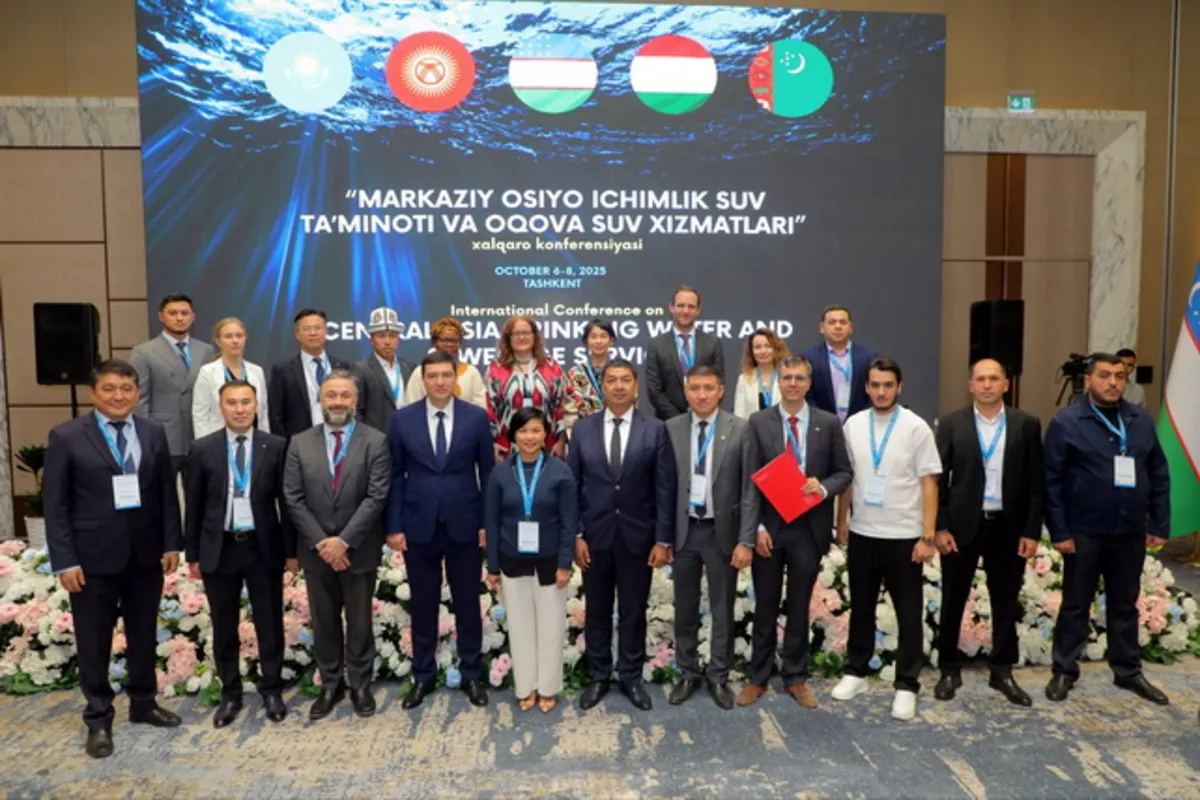
photo: UzDaily.uz
Uzbekistan has launched major reforms in its water and sanitation sectors in recent years, guided by top-level strategic direction.
Over the past eight years, the government has invested 27.5 trillion soums in water infrastructure, including 16 trillion soums (58.4 per cent) in the past three years alone, The Caspian Post informs via Uzbek media.
Of this funding, 60 per cent came from the state budget, while 40 per cent was provided by international financial institutions. These investments have facilitated the construction or rehabilitation of 3,627 facilities and the extension of over 40,600 kilometers in water and sanitation networks.
As a result, 82.1 per cent of the population now has access to safe drinking water, while 20.5 per cent enjoy access to improved sanitation services.
Global Partnerships and Planned Expansion
In 2025, Uzbekistan backed 21 international projects valued at $2.18 billion, collaborating with leading institutions including:
Asian Development Bank (4 projects)
European Bank for Reconstruction and Development (7)
World Bank (3)
Asian Infrastructure Investment Bank (2)
Saudi Fund for Development / OPEC Fund (2)
French Development Agency (2)
SUEZ (1)
These projects plan to install 9,484 km of drinking water pipelines, 3,269 km of wastewater lines, 18 water intake stations, 32 treatment plants, and 483,000 modern water meters. Once completed, they are expected to expand clean water access to 4.1 million people and sanitation services to 2.1 million people.
Looking ahead, Uzbekistan aims to mobilize at least 40 trillion soums by 2030, targeting 90 per cent drinking water coverage and 32.6 per cent sanitation access nationwide.
UN Support and Strategic Vision
At the conference opening, Sabine Mahl, UN Resident Coordinator in Uzbekistan, emphasized the vital role of water and sanitation in achieving Sustainable Development Goal 6. She praised Uzbekistan’s reforms and pledged ongoing support from UN agencies-including UNICEF, UNDP, and FAO-in promoting digital solutions, improving sector efficiency, and optimizing resource use.
Discussions, Site Visits, and Innovation
Conference delegates explored themes such as:
Enhancing the operational efficiency of water and sanitation systems
Institutional reform and capacity building
The application of digital water management technologies
Innovative financing models and private sector participation
Attendees visited key infrastructure sites such as the Kodiriya Water Treatment Plant, Chirchiq Wastewater Facility, and the Mesal Water Technologies facility in Yangiyul. The concurrent Aquatherm Tashkent 2025 exhibition showcased cutting-edge solutions for filtration, energy efficiency, and infrastructure modernization.
Regional Significance and Future Commitment
Organizers and participants described the Tashkent conference as an essential forum for forging regional cooperation in water security. Uzsuvta’minot JSC reaffirmed its commitment to further modernization, digitalization, and service quality improvement in partnership with international networks.
Experts lauded Uzbekistan’s proactive infrastructure development and reforms as a critical contribution to water resilience and stability across Central Asia, setting the stage for broader regional integration and sustainable development.
Share on social media